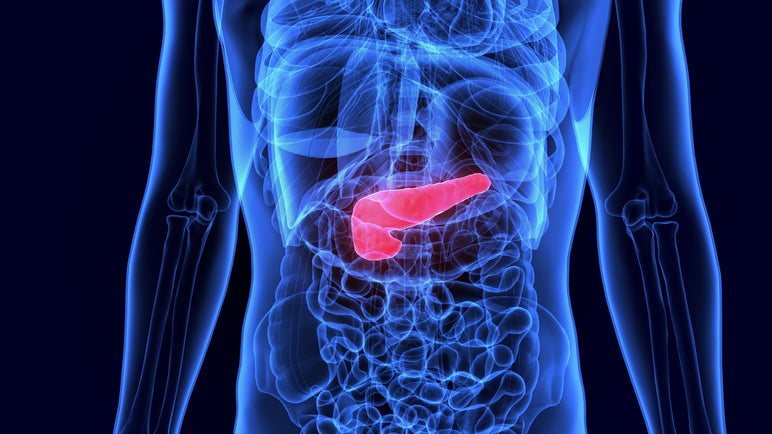Few things are scarier than not being able to catch a breath.
The coronavirus pandemic has called attention to the serious health impacts of respiratory illness and, while the number of diagnoses are on the rise, COVID-19 is not the only risk to your respiratory health.
Lung diseases such as asthma, pulmonary fibrosis or chronic obstructive pulmonary disease and even occasional colds or bouts of the flu can also clog or restrict your airways, making it hard to breathe.
Your lungs are also responsible for carrying oxygen through your bloodstream, removing waste gas, filtering out harmful substances and regulating body temperature—and it happens each time you inhale and exhale. (1)
Take a deep breath and follow these five strategies to improve your respiratory and pulmonary health.
Prioritize prevention:
Protect yourself against getting sick by getting the flu vaccine, washing your hands and practicing good respiratory hygiene, including sneezing into your sleeve and avoiding touching your eyes, nose and mouth, which can transmit viruses.(2)
During the coronavirus pandemic, take extra care to clean and disinfect surfaces such as doorknobs, light switches, computer keyboards and other “high touch” surfaces. Social distancing is also essential: Limit your contact with others to reduce the risk of spreading the virus and go into isolation if you become ill.(3)
Magnesium is one of the important supplements for pulmonary health. It acts as both an anti-inflammatory and a bronchodilator and has been used successfully to clear the airways and make it easier to breathe.(4)
Get moving:
Exercise makes your lungs stronger and more efficient.(5) For the biggest benefits, aim to get at least 150 minutes of moderate intensity exercise every week.(6)
Avoid exercising outdoors when the air quality is poor: high levels of air pollution can be hard on your lungs.(7) Download an app to check air quality in your area and take your workouts indoors when pollution is high to protect your respiratory health.
Butt out:
Smoking narrows the airways in your lungs, making it more difficult to breathe. It’s also a primary contributor to lung diseases.(8) To protect your respiratory and pulmonary health, quit smoking. Secondhand smoke also poses a risk so steer clear of areas where others are lighting up to protect your lungs.
Eat a balanced diet:
The foods you choose could help you breathe easier. Fruits and vegetables that are high in antioxidants; fish containing essential Omega-3 fatty acids; and fiber have been linked to improved respiratory health. A healthy diet can reduce inflammation, easing the symptoms of asthma and obstructive lung disease; high consumption of processed meat is linked to worse lung function.(9)
Quercetin, a flavonoid found in fruits and vegetables such as apples, berries, grapes, tomatoes and onions, is an anti-inflammatory that can help reduce infection risk, according to research published in the journal Nutrients.(10) Additional research showed that flavonoid supplements like quercetin helped boost immune function and reduced the incidence of upper respiratory tract infections.(11)
Fish oil is another natural supplement for respiratory health. Studies show that those with asthma who took Omega-3 fatty acids like those in fish oil led had lower levels of Immunoglobulin E, an antibody that triggers both acute and chronic allergic diseases.(12)
Maintain a healthy weight:
Obesity affects your respiratory and pulmonary health. Not only does it reduce your lung function and force your lungs to work harder, it also makes it more difficult to get diseases like asthma and COPD under control. Even those who are normal weight but have a high body fat percentage are at risk for reduced lung function.(13) Research showed that losing eight percent of your body weight was associated with increased lung volume, improved oxygen intake and reduced breathlessness.(14)
The right combination of healthy lifestyle changes and vitamins for respiratory health can help keep you breathing easy.
2. https://www.who.int/emergencies/diseases/novel-coronavirus-2019/advice-for-public
3. https://www.cdc.gov/coronavirus/2019-ncov/prevent-getting-sick/prevention.html?CDC_AA_refVal=https%3A%2F%2Fwww.cdc.gov%2Fcoronavirus%2F2019-ncov%2Fprepare%2Fprevention.html
4. https://www.ncbi.nlm.nih.gov/pmc/articles/PMC3269605/
5. https://www.lung.org/lung-health-diseases/wellness/exercise-and-lung-health
6. https://www.hhs.gov/fitness/be-active/physical-activity-guidelines-for-americans/index.html
7. https://www.lung.org/blog/four-things-to-know-about-air-quality-and-exercise
8. https://www.lung.org/blog/four-things-to-know-about-air-quality-and-exercise
9. https://www.ncbi.nlm.nih.gov/pmc/articles/PMC5123418/
10. https://www.ncbi.nlm.nih.gov/pmc/articles/PMC4808895/
11. https://www.ncbi.nlm.nih.gov/pmc/articles/PMC4863266/
12. https://insight.jci.org/articles/view/88588
13. https://www.nature.com/articles/s41598-019-38804-3
14. https://www.ncbi.nlm.nih.gov/pmc/articles/PMC4899150/






